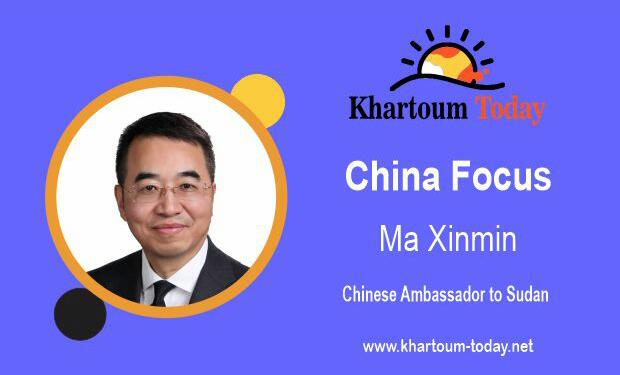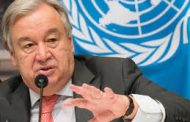At this critical historical juncture as the world is experiencing a transformation the likes of which hasn’t happened for a century and the onslaught of a pandemic unseen in a century, the 75th anniversary of the founding of the United Nations (UN) and the 75th anniversary of the end of the World Anti-Fascist War arrive. It is because of the ongoing turbulence and change across the world that this year’s commemoration of the 75th anniversary of the UN’s founding attracts more attention. Expectant but apprehensive, the countries of the world are reflecting on where the world should go in the next 75 years.
In this golden autumn, Chinese President Xi Jinping attended in succession several important video conferences, namely the high-level meeting to commemorate the 75th anniversary of the UN, the general debate of the 75th session of the UN General Assembly, the UN summit on biosecurity and the high-level meeting on the 25th anniversary of the Fourth World Conference on Women. His important addresses at these meetings provide Chinese solutions to current global challenges and non-traditional security threats and clarify China’s position on how the UN could better play its role.
The world needs an UN that takes on a central role in the international system. Being the most universal, representative and authoritative inter-governmental international organization in today’s world, the UN is at the core of the multilateral international system after the end of the World War II. That said, the mainstay of the international system is not limited to the UN itself, but involves the UN’s specialized agencies and regional international organizations that have established connections with the UN, in a wide range of fields, including politics, security, economy, finance, social development, education, science, culture and health. For example, the international economic and financial order is preserved largely by the World Bank and the International Monetary Fund (IMF), the international trade order by the World Trade Organization (WTO), and the international public health order by the World Health Organization (WHO). Such multilateral international order amounts to an international system that not only maintains national sovereignty but also safeguards the shared interests of the international community. To counter the impacts caused by the headwinds against globalization and protectionist, unilateral and bullying practices, the UN’s role has become increasingly important and prominent. It is imperative for the world to strengthen the authority of the UN.
The world needs an international order underpinned by the purposes and principles of the UN Charter. The contemporary international order is built based on the rules of international law with the purposes and principles of the UN Charter as the fundamental. The UN Charter stands up for the fundamental role of sovereign nations in the international order and establishes the basic principles of international law including sovereign equality among states and non-interference in other countries’ internal affairs. This forms the legal foundation for harmonious co-existence of 193 member states. Meanwhile, the UN Charter clearly specifies the crucial role of the UN in maintaining international peace and collective security, promoting and protecting human rights, among others, establishes the collective security mechanism with the UN Security Council at its core, and makes the maintenance of international peace and security the primary responsibility of the UN Security Council. Practices have proven time and again that the purposes and principles of the UN Charter are the fundamental guidelines for handling international relations. They constitute a cornerstone of stable international order and an important guarantee of world peace and development, and thus must be unwaveringly kept and upheld. In the face of challenges posed by unilateral sanctions, long-arm jurisdiction, willful existing from international organizations and agreements and bullying practices, and non-traditional substantive threat to security, adherence to international law underpinned by the purposes and principles of the UN Charter is the only viable choice for member state of the UN.
The world needs an UN that plays its leading and coordinating role in international governance. The UN, the center for coordinating international affairs and the vital platform for international governance, plays an indispensable part in handling global challenges of all kinds. Confronted with an increasing number of global challenges and non-traditional security threats, including public health risks, climate change, energy resource crisis, cybersecurity, terrorism and transnational crimes, the world needs the UN to showcase its leadership. The COVID-19 pandemic reminds us once again that the well-being and future of all countries are interconnected and no country can respond to the challenges alone. Global issues entail unity and cooperation among all countries. Dealing with problems and challenges alone cannot make a country ensure its own security, and taking a beggar-thy-neighbor approach means that there will be no winner. The pursuit of alliance, confrontation and zero-sum game will even lead to a dead end. Instead, tackling challenges together to achieve common security is the only way forward for all countries. The UN ought to pursue international governance under the principle of extensive consultation, joint contribution and shared interests, while countries in the world need to address common issues through consultation among us all and refuse to let a very small number of countries act arbitrarily.
The world needs an UN that safeguards the common interests of the international community with the vision of a community with a shared future. As the world enters an era of interconnectivity when all countries become interdependent and face intertwined interests, humanity is increasingly becoming a community with a shared future where everyone is bound together. It is of great importance for all countries to keep pace with the times and embrace the vision of a community with a shared future. Countries need to connect their own interests with common interests and seek cooperation and win-win results rather than confrontation and zero-sum policy. While pursuing their own interests, countries should safeguard and promote the shared interests of the international community and collaborate in coping with challenges. Carrying forward and developing the purposes and principles of the UN Charter and safeguarding wider common interests of the international community require countries of the world to seek win-win benefits on the basis of the ideas of sovereignty, peace, equality, justice and cooperation advocated by the UN Charter and to safeguard common interests in broader areas beyond the global peace and security maintained under the UN Charter. In this way, we will promote the building of a community with a shared future for mankind and contribute to building an open, inclusive, clean and beautiful world that enjoys lasting peace, universal security and common prosperity.
In the capacity of a founding member of the UN, the largest developing country in the world and the permanent member of the UN Security Council, China will, as always, support the UN, uphold the UN Charter, and endeavor to work as a defender of world peace, a contributor to common development, a builder of international governance and a promoter of economic globalization. It also wishes to work with the rest of the world to build a strong and powerful UN and push ahead the building of a closer community with a shared future for mankind, and make greater contributions to human development and progress under the banner of the UN.








